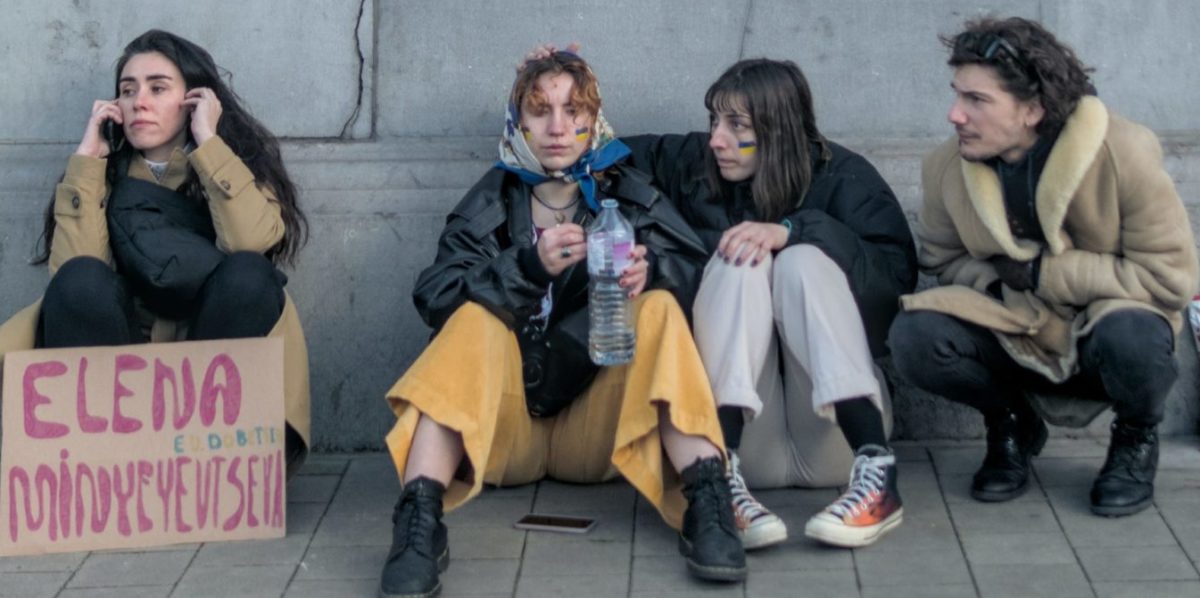Putin’s invasion of Ukraine has challenged the world in more ways than one, and cherished assumptions about Europe, conflict and refugees have all been upended. Canada’s visceral response to Ukrainian refugees, however, should force us to examine our assumptions about global conflict. It should also compel us to rethink assumptions about ourselves.
The number of Ukrainian refugees has now skyrocketed past one million, and Ukraine’s neighbours and the wider world have kindly mobilized to welcome them. In addition to announcing a new program to accept an “unlimited” number of Ukrainian refugees, and waiving application fees for applicants, Canada has also created an “expedited path” to permanent residency for Ukrainians with family in Canada. The program will be open to applicants within two weeks.
But equally worthy refugees from other war-torn countries aren’t offered such largesse from Canada. Last year, when Afghanistan fell again to the Taliban, Canada committed to accepting 40,000 refugees from Afghanistan. To date, however, only 8,000 have been accepted and resettled.
Many Afghanis seeking refuge in Canada assisted Canadian Forces in a campaign that history will likely judge poorly. After the country fell, the dire predicament of Afghani asylum-seekers was repeatedly broadcast in the news. Canadian journalists pleaded with the government for their Afghan colleagues: “They are the brave Afghans – the women’s rights campaigners, peace activists and journalists – who risked their lives telling their stories to Canadians.” But for unspoken reasons those Afghanis will wait, even as the Taliban go door-to-door to track them down.
Syria’s population reached a high of about 22 million in 2010, before cratering to 14 million around 2018 following its civil war. Today, 6.8 million Syrians are refugees or asylum-seekers, and 6.7 million people are internally displaced. As such, well over half of Syria’s population has been displaced. Lest we forget, the aggressor behind the flood of Ukrainian refugees is also deeply implicated in atrocities that precipitated migrations from Syria. To date, Canada has settled 73,000 Syrian refugees, but the influx has now been slowed to a trickle.
But Globe and Mail columnist Doug Saunders argues that Canada must open its doors wider for Ukrainian refugees than for others, citing past Canadian missteps and historic callousness toward Slavic and Ukrainian refugees.
But it’s hard to think of a conflict-torn place in the world that doesn’t have Canada’s fingerprints all over it. From Afghanistan, to Iraq, to Syria, to Libya, to Yemen, Canada has variously sent soldiers, arms, training, equipment, and tacit support for the violence. And let’s not forget the over five million Palestinians who can trace their refugee status to the Canada-sanctioned partition of Palestine in 1947.
Saunders also argued pitiably that Ukraine’s refugees are distinct from the millions of Middle Easterners arriving in Europe during the 2015-2016 migration crisis. This second group, he asserted, were simply “part of a perpetual labour-migration cycle” and besides, “not much more than half of them would eventually qualify as refugees.” A testament to Saunders’ own myopia, it doesn’t occur to him that the rejection of many emigrants during the 2015-2016 refugee crisis might’ve been less about their eligibility, and more about the colour of their skin, their religion, and Europe’s indifference to their plight.
Saunders concluded his piece on Ukrainian refugees poetically, “They’re our friends, neighbours, and sometimes our families. And, given the history, we owe them one.” He might’ve also added, “And they’re Christian and white.”
People don’t flee their home frivolously. They become refugees because they feel they have no choice, whether because of war, famine, violence, impoverishment, climate change, or other factors beyond their control. Canada may have a historic obligation to Ukrainian refugees. But if so, it has an equally compelling historic obligation to refugees from these other countries. Saunders’ bigoted comparison of Ukrainian vs. other refugees is repugnant, but alas, it is likely shared by many other Canadians.
For those who might still argue that Canada and the world are “colour-blind,” and that the circumstances of Ukraine’s refugees are truly distinct from other refugees, one need only look at the treatment of Ukraine’s “brown” refugees. Only days after the exodus began, reports began to emerge that European border control agents were obstructing entry of Ukrainian refugees of colour.
In one case, Awofaa Gogo Abite, a Nigerian doctor who had worked in Kyiv for 14 years, was told by one border official, “You are not our priority. The war is in Ukraine, and I will prioritize Ukrainians. […] I can [deny you entry] as long as I want, and you can do nothing about it.” Abite pointed out that white Ukrainian bystanders noticed the discriminatory treatment he faced, but remained indifferent and said nothing. “When injustice benefits you,” he observed, “you become numb about it.”
Ukrainian refugees certainly deserve our heart-felt sympathy and support. But surely our hearts are big enough to welcome any despairing asylum-seeker fleeing similar strife. If not, then perhaps the numbness of which Abite spoke has already set in.




